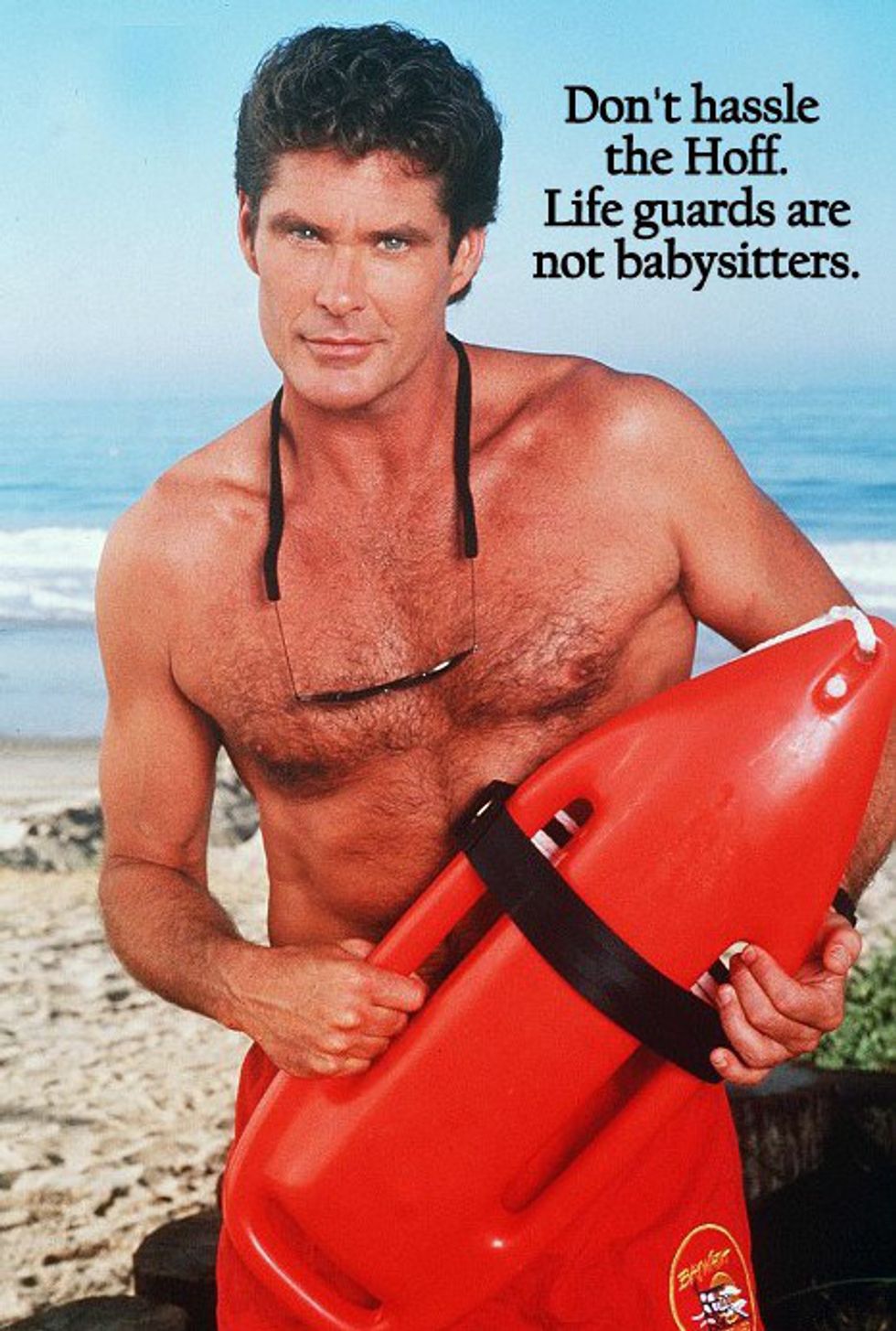When you think about summer, you think about fun in the sun and freedom from school. What better way to accomplish the two than to spend the day lounging at a pool everyday? But this summer, it’s a precarious thought due to the shortage of people wanting to be lifeguards.
Growing up, being a lifeguard seemed like the coolest job around. Watching these tan, lithe, teenagers spring into action at a moments notice paired with the beautiful Wendy Peffercorn from The Sandlot, inspired a bit of hero worship in a lot of young kids. Naturally, when my school offered a lifeguarding class (for free, no less), I jumped at the chance. It was fun to learn and the first aid was a head start on my nursing aspirations.
But when the time came and I got hired on at my local pool, the dream fell to the wayside as I was tasked with staring at water for hours on end with the fear in the back of my mind, all day, everyday, that someone was going to get seriously hurt on my watch. The monotony was broken up by telling (yelling at) kids to walk, get off the lane-line and that dunking was not allowed. The first time I had to get in the water for a rescue my hands shook for an hour afterward. I got to finish off the day by cleaning the facility. And if you’ve ever wanted to dislike an entire city’s worth of people, clean up the bathrooms they use.
So why the shortage? The average age of lifeguards at my pool is 18, ranging from 16 to 21, with one of our heads guards a cool 23. Most of us are the “good kids”, the honor students who are able to grasp the CPR method and memorize the zillions of rules that go along with the pool. But as we are the “good kids,” we are also the kids who are looking toward our future, which means internships and volunteering. Why stay working at pool with long hours, disgusting bathrooms and awful patrons when I could sit at the front desk of a doctor’s office in the air conditioning and pad my resume at the same time?
Despite the fact the the job is primarily done by high school and college students, lifeguarding is an important job. We are the last defense between a happy day at the pool and every parents’ worst nightmare. All it takes is one second for a kid to slip away beneath the surface of the water. And yet, we are treated like idiots. My friend's pool an hour north of mine has a restraining order against one parent who treated a lifeguard so badly the guard nearly quit. Once, I got cussed out by a grown man with 3 teeth for asking him to stop cussing in front of little kids. Today, a little girl puked on me after I picked her up when she fell out of her inner-tube.
So on behalf of lifeguards everywhere, here’s the run down. We are not babysitters. It is your job to watch your kids. We are the goalies, the last resort, the last line of defense. If we fail, there’s no one left to help. So before you yell at us, think of how far it had to get down the field; you are the forwards, the midfielders and the defensive lines. Furthermore, stop yelling at us. If you don’t believe in telling your child no, go to a different facility. The rules are the rules because of people getting hurt, if you have an issue take it up with the Parks and Recreation Department or the State Board of Health, but yelling at us is only going to make you the laughing stock of the staff. If you are an adult, act like one.
Don't get me wrong, I love my job. I enjoy working with people and the opportunity to make a difference, even if it's just to give a rather scary reminder for a little kid not to swim too deep without mom or dad. I like working with my friends in the sun and even though it's a lot of work, it can be fun. But it can also be thankless.
The starting pay for McDonalds workers is $8.55. Mine is $8. And while I admit I would not ever want to learn a menu, I did learn CPR, First Aid and the signs of a distressed swimmer; and not to brag, but I have saved lives. So why do I not get compensated? Add in that certification is usually $200, it’s a lot of work and money just to get yelled at by people who have nothing better to do than criticize lifeguards.
Working with the public has showed me who not to be, to always treat everyone with respect, especially those who may one day be called on to save the lives of my friends and family and to research a job better next time. If you’re wondering why there is a lifeguard shortage, look at the low pay, the long hours, and the people we are watching over. The first step to ending the shortage is upping the pay and expecting more of the patrons.
We are in fact people too, and while our eyes are busy watching the water we can still hear all the insults you call us. We're doing the best we can, can you say the same?




















